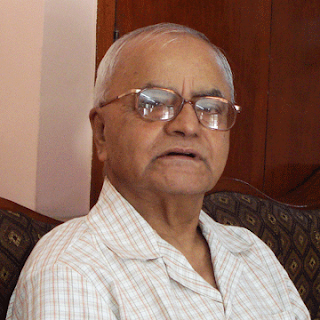Columns
Opposition politics revisited
Nepali Congress has an opportunity to make its presence felt by addressing popular issues, but it is being hampered by internal differences.
Lok Raj Baral
The government and the opposition are two words that are generally understood in the context of well established liberal democratic systems. In the presidential system, the opposition cannot ordinarily remove the executive head as it has a fixed term. However, in parliamentary practise, the numbers matter. This is especially true if the government is haunted by a razor-thin majority; it is always vulnerable to a vote of no confidence.
An opposition that joins the political process and prefers to work within parliament or elsewhere is called 'systemic', and others that mount an opposition over the very existence of the system are 'extra-systemic' or unconstitutional. Generally speaking, oppositions within authoritarian regimes take violent forms by resorting to both overt and covert activities to overthrow them. Such oppositions work for the replacement, and not for reform or renewal, of the regime. The oppositional politics conducted by Nepali Congress in the 1960s and again in the early 1970s and by the revolutionary factions of the communist party, and the 10-year insurgency launched by the Maoists belong to the revolutionary category.
Electoral success a priority
The nature of the opposition the world over has changed, with parties tending to be preoccupied with winning elections by any means, fair or foul. The recent elections in the United Kingdom, India, and other countries demonstrate that populism, the charisma of the leaders, and contextual and catchy emotive slogans seem to work wonders for electoral success.
In Nepal, KP Oli cashed in on the alleged Indian role in stoking the Madhes movement, particularly when the general people suffered from what is called an 'undeclared blockade'. In the absence of credible alternate leaders and organisations, the people in today’s elections do not go for ideologies and vote for the projected messiah who is expected to do miracles after getting into power. It happened with Narendra Modi in India and Oli in Nepal as these leaders were in a better position vis-à-vis their opponents.
For opposition parties to be competitive and credible in the eyes of the people, besides other supporting factors, the leadership's role becomes a crucial variable. Communications skills, articulation of people-oriented issues, ability to exploit the developing situation and dominance over the party structure can make people change their perceptions about leaders and parties. However, when the leaders turn into stereotypes and become boring by not fulfilling the promises made, opposition politicians have a better chance to be attractive to the masses. But it depends on the opposition leaders’ ability to make the situation propitious for their parties.
Nepali Congress has an opportunity to make its presence felt if the leaders transcend petty interests by making a broad working coalition, if not a wholly solidified organisation, and by addressing popular issues (keeping an eye on the coming elections). But its present leaders are bogged down in personal interests as if they are incapable of raising the most important issues concerning the ordinary people. Thus, Nepali politics currently lies between the devil and the deep blue sea with no major party being able to deliver.
Parliamentary politics in the conventional sense is now redundant, not because of the irrelevance of democracy, but because of manifold departures from the touted two-party system which is better suited to the first-past-the-post electoral method. In the multiparty system, votes are fragmented, enabling parties with fewer votes to win elections. The recent election in the United Kingdom has shown such outcomes. It has been said that the first-past-the-post method could significantly skew the results. Since British politics is no longer confined to the two-party system, splitting of votes seems to favour a party that can polarise voters and win elections with fewer votes than the combined votes polled by other parties opposed to its stand.
It seems that opposition parties are particularly hamstrung by the inconveniences they encounter during elections. Sometimes, the ambivalent roles of party leaders and lack of clarity on issues and agendas make the opposition suffer as it was demonstrated in the recent British election.
Authoritarian trends
In Nepal too, the major opposition party, Nepali Congress, could not find suitable strategies to outbid the Nepal Communist Party, nor could the Nepali Congress president match KP Oli's short-run campaign agenda and style. Nevertheless, the manner in which the Oli government today seems to be veering towards authoritarian trends, that are evident in its penchant for making Nepal a ‘surveillance state’ or in its embrace of Xi Jinping Thought, Congress as a major democratic party needs to shoulder the responsibility to stop such steps that are likely to jeopardise the established democratic order.
Although the Nepali people are not likely to subscribe to such authoritarian trends because of their long socialisation with liberal exercises, opposition parties such as Nepali Congress should be on their guard to safeguard the spirit of the constitution. Nepali Congress has raised its voice by warning the Oli government not to be zealous of replicating other countries’ model, but to be smart enough to deliver.
***
What do you think?
Dear reader, we’d like to hear from you. We regularly publish letters to the editor on contemporary issues or direct responses to something the Post has recently published. Please send your letters to [email protected] with "Letter to the Editor" in the subject line. Please include your name, location, and a contact address so one of our editors can reach out to you.




 18.12°C Kathmandu
18.12°C Kathmandu















